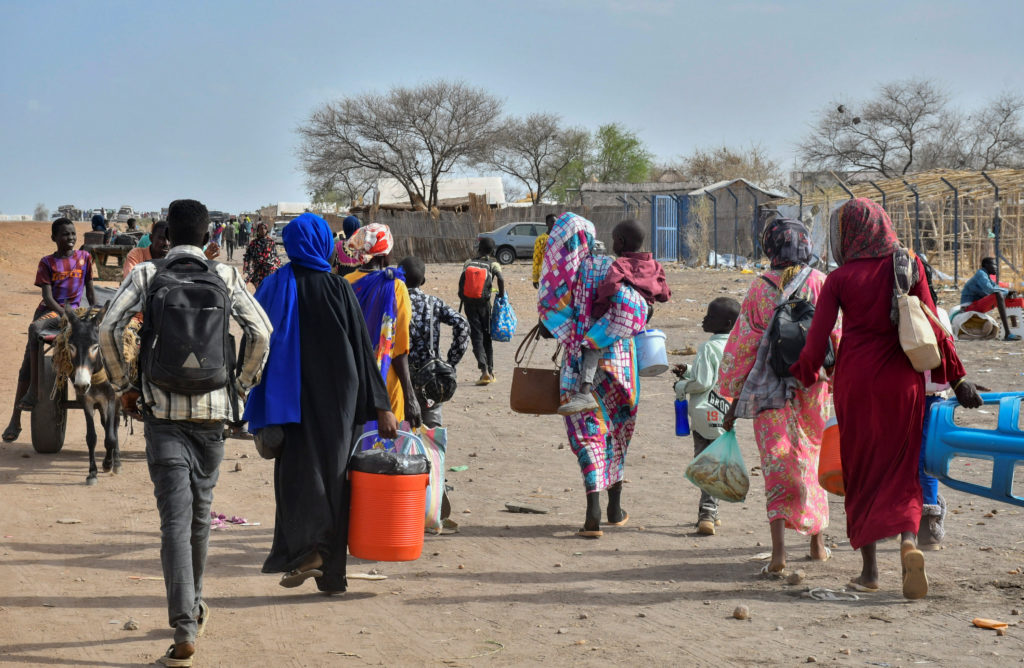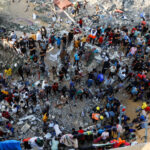Numerous individuals had evacuated before the paramilitary RSF took control of the city of Wad Medani this week.
The conflict between Sudan’s military and a notorious paramilitary group has resulted in the displacement of up to 300,000 people in a province previously considered a safe haven for families affected by the devastating conflict in northeastern Africa, according to the United Nations on Thursday.
The clashes erupted in Wad Medani, the provincial capital of Jazeera province, when the Rapid Support Forces (RSF) attacked the city earlier this month. The RSF claimed control of Wad Medani this week, with the Sudanese military acknowledging their withdrawal from the city.
The International Organization for Migration (IOM) reported that between 250,000 and 300,000 people fled the province, with many reportedly traveling on foot to safer areas in al-Qadarif, Sinnar, and the White Nile provinces. Some sought refuge in displaced persons camps, while others found shelter in local communities.
Jazeera, formerly Sudan’s breadbasket and home to approximately six million Sudanese, experienced an influx of around 500,000 displaced individuals since the onset of the war. Most of these displacements originated from the capital, Khartoum, which has been a focal point of conflict, as reported by the UN Office for the Coordination of Humanitarian Affairs. Medani, situated roughly 100 kilometers southeast of Khartoum, had provided refuge for over 86,000 of the displaced, according to OCHA.
On Wednesday, the World Food Programme declared a temporary suspension of food assistance in certain parts of Jazeera, marking a significant setback in humanitarian efforts within the province.
The conflict in Sudan, which commenced in mid-April, stems from escalating tensions between military chief Gen. Abdel-Fattah Burhan and RSF commander Gen. Mohammed Hamdan Dagalo. Both generals orchestrated a military coup in October 2021, disrupting Sudan’s brief transition to democracy following a popular uprising that ousted President Omar al-Bashir in April 2019.
As of October, the UN reports that the conflict has ravaged Sudan, claiming the lives of up to 9,000 people. However, activists and medical groups argue that the actual toll is considerably higher.
IOM Director General Amy Pope described the situation as “a human tragedy of immense proportions,” emphasizing the exacerbation of the country’s already dire humanitarian crisis. She stressed the pressing need for a peaceful resolution, a ceasefire, and a robust response to avert further catastrophe.
Sudanese citizens are seeking refuge in Chad and other African nations, with over 1.5 million fleeing to neighboring countries, as per UN reports. Chad has received more than 500,000 refugees, primarily from Sudan’s western region of Darfur, where the RSF has gained control over significant areas.
The conflict in Wad Medani has compelled numerous aid organizations, including the International Committee of the Red Cross, to evacuate their staff from the city, a key hub for humanitarian operations in the country. Ahmed Tag el-Sir, a father of three, fled with his family to the neighboring province of al-Qadarif after the RSF took control of their village, al-Sharfa Barakar, north of Wad Medani.
“They shelled the village and occupied residents’ homes, similar to what happened in Darfur,” said the man, speaking from a relative’s house where he sought refuge with two other families. “We fled out of fear of being killed or our women being subjected to violence by the Janjaweed.” The RSF’s takeover has raised concerns among Wad Medani residents that they may carry out atrocities in the city, similar to incidents in the capital, Khartoum, and Darfur. The RSF has faced accusations of atrocities in Darfur, which witnessed a genocidal campaign in the early 2000s.
The RSF originated from state-backed Arab militias known as Janjaweed, implicated in widespread killings, rapes, and other atrocities during the Darfur conflict.



